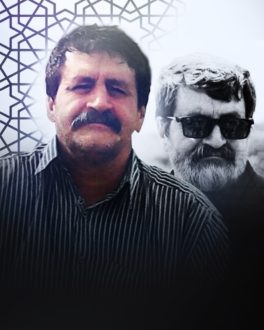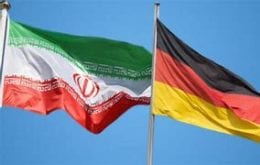CHRI – The family of a man who died in police custody in Iran intends to sue judicial authorities for burying him without their permission the Center for Human Rights in Iran (CHRI) has learned.
Their attorney, Arash Keykhosravi, told CHRI that Mohammad Raji’s body was transferred by ambulance from Tehran 242 miles south to Aligoudarz, in Lorestan Province, where he was buried in a cemetery at 2 am on March 6 against the family’s wishes.
“We have been told that an autopsy has been carried out and it usually takes two months for the results to come in,” Keykhosravi said. “We have to wait for the judicial process to go forward.”
Keykhosravi added that he’s investigating exactly how Raji died.
“We don’t know if he died from beatings in the process of being detained on February 20 [2018] or while in detention,” he said. “We need to clarify these ambiguities.”
Raji died sometime between February 20 after he was injured and detained at a protest in Tehran, and March 4, when his body was identified by a relative. His death marks the fourth known death of a detainee in Iran in the last two months.
Mohammad Raji’s son, Mohammad Ali Raji—who was arrested on the same day as his father on February 20—was prevented from attending his father’s funeral despite posting bail. He is still being held at the Great Tehran Penitentiary (GTP) in Fashafouyeh, 20 miles south of the capital.
“The family is very sad and I’m waiting for them to recover a little in order to discuss what we need to do next,” the attorney told CHRI. “I really don’t know why the authorities act this way with citizens and put pressure on the families.”
“I will certainly honor my duty and take action against violations of my clients’ rights and the authorities will have to give answers,” he added.
Mohammad Raji was a devotee of a Muslim Sufi order in Iran known as the Gonabadi Dervishes. He was arrested along with dozens of other detainees at a protest in Tehran in February 2018 that grew into violent clashes with security forces.
Mohammad Raji was also a veteran of the Iran-Iraq War (1980-88), during which he commanded several battalions of Iran’s Islamic Revolutionary Guard Corps (IRGC) in Kurdistan Province, according to the Mazjooban website.
In 2004, he left the IRGC and became a farmer in Mazraehabad, a village near the city of Aligoudarz, Lorestan Province, according to the report.
The Fars News Agency, which maintains close ties with the IRGC, reported on March 5 that a source had denied that Mohammad Raji died in state custody.
The report said: “An informed source denied reports about the death of a dervish in Evin Prison or in police detention and said: We have not had any deaths among members of this cult during investigations. He added: This person was injured on the night of clashes on Pasdaran St. and was taken to Baqiyatallah Hospital but he died.”
The report added: “The source said: At first the identity of the deceased person was not clear but he was later identified and his family was informed. The source added: the body of the deceased was transferred to the medical examiner and an autopsy was carried out.”
Mohammad Raji’s daughter, Tayebeh Raji—who was detained the same day as her father on February 20 but released late that evening—has disputed the claims made by Fars News’ source.
She told CHRI that she saw her father being arrested and that the authorities refused to inform her about his whereabouts until after he was declared dead.
“I was there when it happened,” she said. “He was taken into custody ahead of me. I saw that my father was injured; he was on the ground [on 7th Golestan St.] with a bloody face. But I saw his hand move and realized he was alive.”
She continued: “I was detained at 4:30 in the morning [February 20] and taken to the Vozara Detention Center and they released me at 12 midnight. We had no information about what had happened to our father and he didn’t contact us. Anywhere we went, no one had any information.”
“We got a lawyer to follow up on the case because my father’s death was caused by blows they struck to his head,” added Tayebeh Raji. “We need to shed light on this crime. We are demanding an autopsy.”
On March 13, four human rights organizations called on Iranian authorities to end “their cruel campaign of harassment and intimidation against the families of detainees who have died in detention under suspicious circumstances.”
“The authorities should ensure that if there is sufficient evidence of unlawful deaths in detention, the perpetrators responsible will be prosecuted and punished,” added the statement signed by CHRI, Amnesty International, Human Rights Watch and Justice for Iran.
 Shabtabnews In this dark night, I have lost my way – Arise from a corner, oh you the star of guidance.
Shabtabnews In this dark night, I have lost my way – Arise from a corner, oh you the star of guidance.



